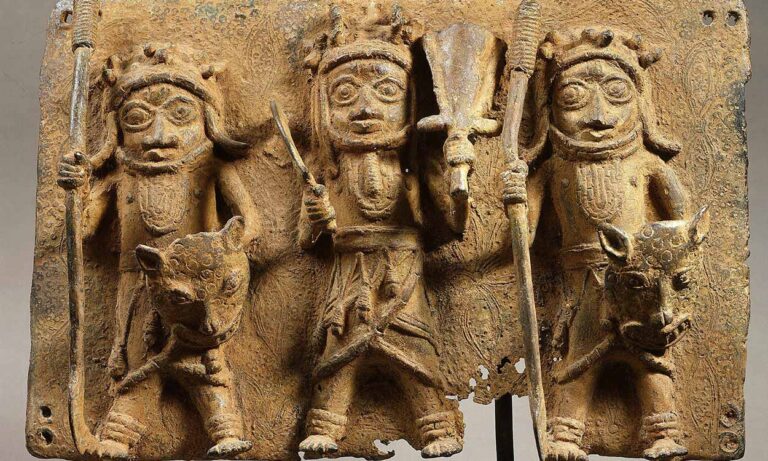Over 100 looted Benin bronzes to be returned to Nigeria by Cambridge University
The University of Cambridge has announced that it will return over 100 looted Benin bronzes to Nigeria—a move that comes as a surprise to many considering that calls demanding the UK to return artefacts stolen in Benin City (now southwest Nigeria) had been increasing since 2020.
A university spokesperson stated, “The Charity Commission has considered and approved the return of 116 historical objects, often referred to as the Benin bronzes, from the University of Cambridge’s Museum of Archaeology and Anthropology to the National Commission of Museums and Monuments (NCMM) of Nigeria.”
They went on to explain that the university “is now working with the commission to finalise next steps” and will communicate these in due course. It should be noted however, that not all stolen artefacts will actually be physically returned—some will be transferred to the National Commission for Museums and Monuments, as is required legally by the Republic of Nigeria, while others will remain in Cambridge on “extended loans.”
The artefacts, which are mainly made of brass but also include some ivory and wooden objects, were taken by British armed forces during the sacking of Benin in 1897, when the city’s palace was burned and its Oba (king) was exiled.
Thousands of brasses and other works—known collectively as the ‘Benin bronzes’—were taken and later sold off in London to recoup the hefty cost of the military mission. The artefacts ended up being scattered around the world in museums in the UK, Europe, and even the US, with claims for their restitution dating back to the mid-20th century.
In August 2022, London’s Horniman Museum announced that it would be handing over ownership of its 72 Benin bronzes to Nigeria. Since then, the floodgates for repatriation have well and truly opened.
For Nigeria however, this recent wave couldn’t have come soon enough. The country’s mission to reclaim the bronzes began in the 1930s, took hold with independence in 1960, and gathered pace in 2007 with the formation of the Benin Dialogue Group—a working party of representatives from Nigerian and European cultural institutions focused on bringing the artefacts together in Benin City.
@thenewsmovement Many museums in the Western world contain artifacts that were looted during the colonial era. Freddie investigated the case of the Benin Bronzes, which the Nigerian Government have requested to be returned. Some have agreed to give back these artworks whereas others, such as the British Museum, have not.Let us know what you think about whether these artworks should be returned 👇 #BritishMuseum #Nigeria #Colonialism Art📸 AP / Getty / British Museum
♬ original sound - The News Movement
Then in October, the country’s culture minister, Lai Mohammed, urged the British Museum to follow the example of the Smithsonian Institution, which returned ownership of 29 Benin bronzes to Nigeria. “It’s not if, it’s when,” Mohammed said at the time.
Earlier in December, it was also revealed that the chair of the British Museum, George Osborne, had held talks with the Greek prime minister, Kyriakos Mitsotakis, regarding the possible return of the Parthenon marbles.






